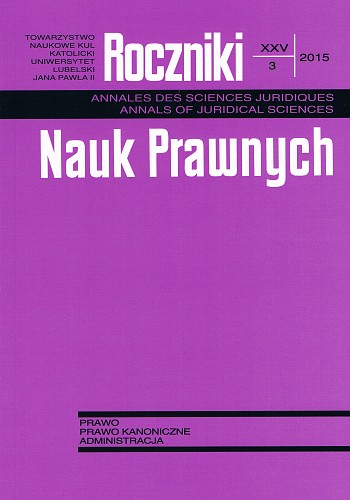Prawnokanoniczne implikacje nakazu misyjnego
Legal and canonical implications of the missionary mandate
Author(s): Sylwester KasprzakSubject(s): Law, Constitution, Jurisprudence
Published by: Towarzystwo Naukowe KUL & Katolicki Uniwersytet Lubelski Jana Pawła II
Keywords: kerygma; evangelization; missions; dialogue
Summary/Abstract: The article presents the implications of the missionary mandate in legal and canonical terms. This means that the legislator has placed in the 1983 Code of Canon Law several significant Church canons governing the matter missionary. Evangelization in the Modern World is still valid. Attention is paid to those responsible for the development of missionary work in the universal Church. These are the pope, bishops, priests, nuns, religious and laity drilling. The creator of mission and evangelization in the world is the Holy Spirit who inspires and unites a community of faith, which is the Church. The penetration of the truth of the Gospel into the cultures that inculturation which takes place in the preaching of Good News. The structure of the development consists of the following sections: 1) Introduction; 2) The canonical recognition of the missionary mandate; 3) The missionary nature of the Church; 4) Entities proclaimed the kerygma; 5) Audience and cultural context of the mission of preaching the Word of God; 6) The contemporary world and topicality of the mission; 7) Summary. We described a details of the canons into the Code of Pope John Paul II, which relate directly to the missionary activity of the Church to the contemporary world. They have indicated in which direction is developing new horizon of the mission ad gentes.
Journal: Roczniki Nauk Prawnych
- Issue Year: 25/2015
- Issue No: 2
- Page Range: 129-150
- Page Count: 22

